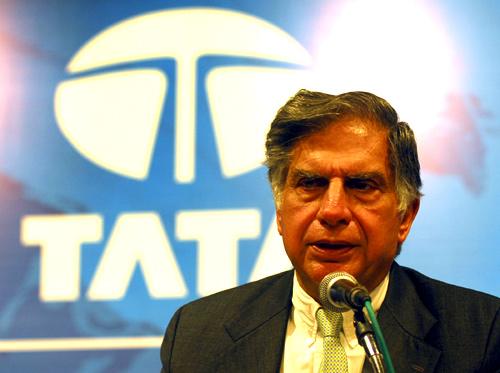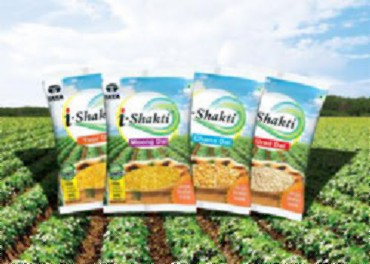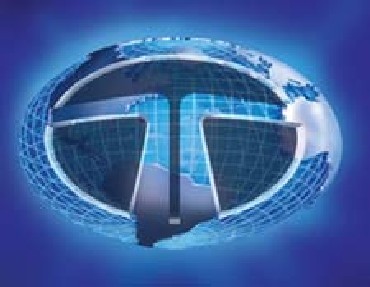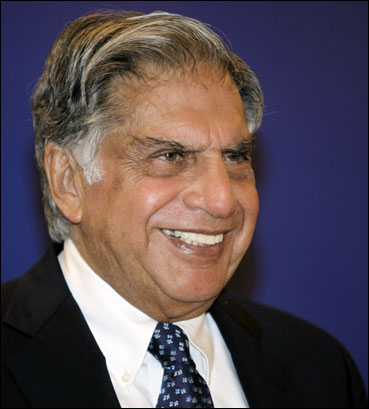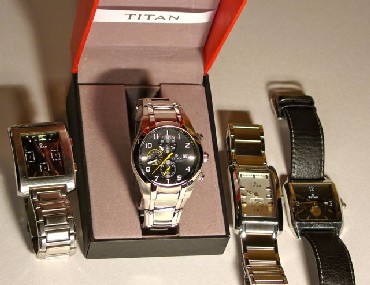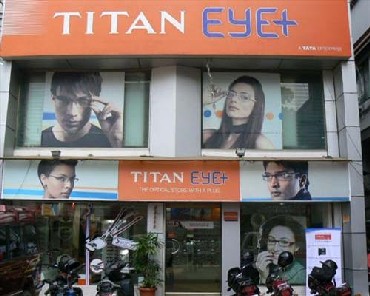 | « Back to article | Print this article |
Tata Group's four little gems
They may not be big contributors to the Tata kitty, but are still significant to its growth story.
Companies such as Trent, Tata Global Beverages, Titan Industries and Tata Chemicals have together grown at a compounded annual growth rate of 23 per cent in the last six years.
They continue to be the rising stars in the group with each clocking double-digit topline growth.
Tata Chemicals grew at a CAGR of close to 23 per cent in the last six years. Trent, Titan and TGB grew by 30 per cent, 35 per cent and 13 per cent respectively in the same time frame.
Click NEXT to read further. . .
Tata Group's four little gems
While the four companies contributed just about seven per cent to the total turnover of the Tata Group in the 2011-12 financial year, analysts say this number could go up as these businesses ride the consumption boom.
Group observers say that the fab four have actually helped the over 100-year-old Tata conglomerate mark its presence in sunrise sectors such as fast-moving consumer goods, retail, agri, bio and nano technology.
It is these sectors amongst its other staple categories of information technology, automotive, hospitality, power and steel that the Tatas are increasingly counting on as they position themselves as an organisation of repute on the world stage.
Click NEXT to read further. . .
Tata Group's four little gems
It is also from among these very sectors that the Tatas' first major international acquisition happened.
The year was 2000 and the acquisition was Tetley, a company three times the size of TGB then called Tata Tea, with a seven per cent share of the world tea market and ranked number two after Unilever's Brooke-Bond-Lipton.
TGB was a local player then largely known for tea and coffee production. Its branded play was hardly significant beyond Indian shores though the company did have a joint venture with Tetley for export of its products.
But it needed a strong platform to launch itself on the global stage.
Click NEXT to read further. . .
Tata Group's four little gems
That opportunity came with the Rs 1,500-crore (Rs 15-billion) leveraged buyout of Tetley, the largest cross-border acquisition for an Indian company.
When making the announcement in February of 2000, chairman Ratan Tata had famously said, "It is a bold move and I hope that other Indian corporates will follow."
They did.
But more so it gave the Tatas the courage to take on even bigger risks.
That is, acquire more businesses across sectors.
In beverages alone in the last decade, TGB has wrapped up a string of buys including Good Earth and Eight O' Clock Coffee in the US, Jemca in the Czech Republic and Grand in Russia.
Click NEXT to read further. . .
Tata Group's four little gems
"We are a natural beverages company and our focus will be on tea, coffee and water," Harish Bhat, managing director, TGB, had said in a recent conversation with Business Standard.
The company is open to striking more alliances with like-minded partners if required -- it has two at the moment, one with PepsiCo, the other with Starbucks -- and is keen to up its revenues from coffee and water.
But TGB is not the only company where Tata's global ambitions have played out ahead of other entities in the group.
Click NEXT to read further. . .
Tata Group's four little gems
Titan is another case in point.
Set-up as a joint venture between the Tatas and the Tamil Nadu Industrial Development Corporation in 1984, the company has in the last three decades positioned itself not only as a leading maker of watches in India, but also amongst the top in the world.
It is currently eying the number three position -- a jump two places from number five, where it stands globally in the watch market.
In India, Titan accounts for about 25 per cent of the volume and 40 per cent of the value of the over 50-million-unit-watch market.
Click NEXT to read further. . .
Tata Group's four little gems
It has also created some enduring brands such as Fastrack for youth, Raga for women, Nebula, a gold watch targeted at the premium end and Sonata at the lower end.
In the last few years, Titan has devoted its attention to other businesses too such as jewellery under Tanishq, which gives it over 70 per cent of its revenues today, and eye-wear, a new area it ventured into besides leather accessories such as wallets, belts and bags, as it looks to take advantage of India's consumption and retail boom.
Titan's managing director Bhaskar Bhat has said that the company will continue looking at all lifestyle categories barring apparels.
While Titan's growth has been largely driven by organic measures, it has wrapped up a few buys such as the acquisition of the Swiss heritage brand Favre-Leuba last year.
Click NEXT to read further. . .
Tata Group's four little gems
Speculation was rife in July this year that it was contemplating a $1-billion or over Rs 5,000-crore (Rs 50-billion) acquisition of Canada-based luxury watches and jewellery retailer Harry Winston.
But this was denied by the company.
On Trent, the government's move to permit foreign direct investment in retail has opened up prospects for an alliance in that area, say analysts.
The loss-making company already has a franchise agreement with Tesco under which the Indian firm's Star Bazaar supermarkets use Tesco's supply chains and infrastructure.
Both Trent and Tesco are now believed to be exploring the possibility of expanding their alliance in the wake of parliament's nod to retail FDI, say sources.
